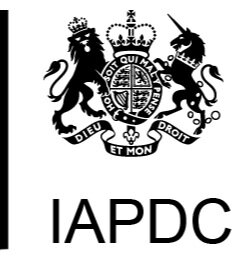More must be done to ensure Prevention of Future Death reports live up to their name, says IAPDC
The IAPDC has today published its report, “More than a paper exercise” – Enhancing the impact of Prevention of Future Death Reports. Prevention of Future Death (PFD) reports are issued by coroners to individuals and organisations where they believe action should be taken to prevent deaths. As the Chief Coroner’s guidance states, these reports are “vitally important if society is to learn from deaths”. However, the IAPDC has found that their potential to safeguard the lives of individuals in the state’s care is not being fully realised.
Bereaved families make clear their hope that lessons are learned from the deaths of their loved ones so that no other family has to experience the same grief. But too often they criticise the current PFD report system as “nothing more than a paper exercise”. With support from the Chief Coroner’s Office, the IAPDC embarked on a project to identify good-practice recommendations and proposals for reform to improve the impact of this vital coronial function.
The IAPDC’s report found several factors are limiting the effectiveness of PFD reports to prevent custody deaths. These relate to the way reports are drafted, published, and distributed, as well as how custodial services and relevant bodies use learning from reports to effect meaningful change. The IAPDC makes a series of recommendations to improve PFD processes and practices, which include:
PFD reports should be viewed as opportunities to improve practice and should be shared as widely as possible to inform local and national learning.
Clear guidance and training should be developed to improve the PFD process and enhance the impact of the reports.
Adequate funding is needed to enable the Chief Coroner’s Office to better carry out its research and oversight functions to encourage progress following publication of PFD reports.
Speaking about the report, Lynn Emslie, Chair of the IAPDC, said:
Almost 15 years after the Coroners and Justice Act came into force, changes are needed to ensure PFDs are being used effectively to prevent the tragedy of state custody deaths. Our report identifies a range of improvements to ensure the preventative potential of PFD reports is fully realised and that lessons are truly learned from these often avoidable incidents. I call on all those involved to work closely with the Panel to make sure that PFD reports are not just a ‘paper exercise’ but a vital tool to change practice for the better.
Deborah Coles, former IAPDC member and Executive Director of INQUEST said:
Families go through protracted and complex inquests after deaths in detention in the hope that no other family will go through the same experience and that positive changes occur. Yet time and time again, we see repeated patterns of failure which contribute to these often preventable deaths. We are grateful to bereaved families, along with coroners and government agencies, for their rich contribution to this report. We need to maximise the preventative potential of these reports that too often simply gather dust. I now urge those involved in the PFD process to take heed of the Panel’s findings and recommendations to help drive sustained improvements and change.
As part of the project, the IAPDC consulted with coroners, bereaved families, and agencies and services which respond to PFD reports. It also carried out a sampling exercise of 20 PFD reports across the custodial landscape. The project comes almost 15 years after the Coroners and Justice Act 2009 – which places a duty on coroners to make reports where there is a risk that other deaths will occur if action is not taken – came into force. The IAPDC will continue to work with the Chief Coroner and bodies with a key role in preventing deaths to ensure the preventative potential of PFD reports is unlocked and fully realised.
Read the IAPDC’s report here.
